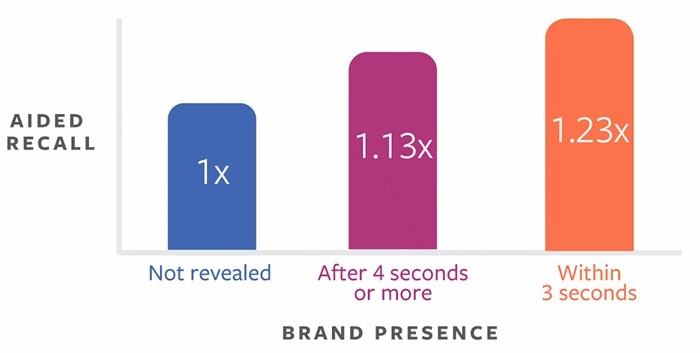Online video has undergone tremendous growth in recent years. But it's not just YouTube that's become highly popular. Facebook, too, has continued to drive video growth on-platform.
Video has become a powerful medium both for individual users and for brands on Facebook, where at least 100 million hours of video are watched every day. Moreover, video content performs better than other content on Facebook, according to Facebook's data; and, in tests of creative, respondents say video feels more personal to them.
As video continues to grow as a storytelling medium, we marketers need to maximize efforts on the platform to get the most out of our video content.
Here are eight tips that together constitute a set of general guidelines for creating and using videos effectively on Facebook.
1. Tailor to your audience
As is the case with all marketing content, video needs to be relevant to the intended audience's interests to be successful. Relevance will always be the No. 1 rule for any piece of content, and video is no exception.
Use audience research and insights to generate content ideas and create stories that will resonate.
To take it to the next level, consider creating different videos (or slightly different versions of the same video) for different target audiences, particularly when you are running paid Facebook campaigns.
2. Create short-form video
The human attention span seems to be daily getting shorter: The average scroll on Facebook is 1.7 seconds. That's all the time you have to capture a user's attention.
If your video content isn't grabbing attention quickly to hook the user, your video views are likely going to suffer. Use storytelling techniques to quickly pique interest as users scroll.
People prefer shorter video on mobile—15 seconds or less—according to Facebook. A best-practice is to keep Facebook videos 3-15 seconds long, and to use those first few seconds very wisely.
The good news is that shorter videos have higher completion rates; that means you have a better chance of sharing your entire message with users who watch until the end.
3. Introduce brand identity early
Incorporate brand identity, using brand or product imagery or references, early on—typically within the first three seconds.
In a meta-analysis of video marketing data, Facebook found that consumers were 23% more likely to remember which brand made a video ad if the brand was featured in the first three seconds, and 13% more likely if the brand was featured after the four-second mark.

Brand presence matters. Establishing your identity within the first seconds will aid in recall.
4. Build for sound off, delight with sound on
Even though Facebook auto-plays videos with the sound on, the vast majority of video views happen with the sound off because many people adjust their settings before browsing.
Accordingly, it's important to make sure your videos can entice users without relying on sound to tell your story. Use beautiful imagery and on-screen text to help you tell your story; and if there is any voiceover, consider using captions, which you generate captions through Facebook's in-platform features.
When sound is enabled, it should offer additional value to further bring your story to life.
5. Build vertical
It's simple, vertical video format (1:1 or 9:16) gives you more real estate in the feed. Buffer found that square videos take up 78% more screen space than landscape videos, which is critical when over 95% of Facebook users now access the network on their mobile devices. The bigger your video appears, the more it grabs attention and the more likely people are to engage with it.
Buffer also found that square videos outperformed landscape video in video views, engagement (likes, comments, and shares), and completion rate. In some cases, square video resulted in 30-35% higher video views and an 80-100% increase in engagement.
And no one likes flipping a phone horizontally to watch a video on mobile. Meeting your customers where they are means delivering video that works on the devices they're using without much fuss. And Facebook data revealed a 3-9 percentage point increase in ad recall when ads were designed for vertical.
If you are using video for Facebook ad campaigns, all square formats will fit in its ads manager and will be eligible for placement as well.
6. Go Live
Facebook reports that people watch video for a longer time when it's live, and that Live videos get over more comments than regular ones. In addition, Facebook gives priority to live video in its algorithm.
Take advantage of the extra traffic potential by creating thoughtful live video content.
Viewers may not want to watch you eat your lunch, but streaming your upcoming panel discussion, an insider look at a new product release, behind-the-scenes at an event, or anything else that consumers may find interesting and relevant can drive real engagement with your brand.
Promote your live video stream to reach a larger audience and gain traction.
7. Play with ads
Depending on your marketing goals, Facebook has plenty of ad types to choose from. And you're probably used to using the same ones over and over. Try using Collections, Canvas, and other video ad formats to drive higher engagement and retain user attention. These ad formats typically require more effort, so use them when you have more time on your hands to dig deeper into your story and create an engaging experience.
Facebook has said Canvas ads can provide a 30-50% lift in return on advertising spend compared with other formats. As a highly immersive ad format, videos work great in Canvas ads because they can convey emotions and information more effectively than static images and copy can.
Between Facebook Live video ad breaks and collection videos, there are plenty of opportunities for video advertising. And with the seamless integration of Instagram through Facebook Business Manager, you can run ads on Instagram from one account. Try using your Facebook video content on Instagram to see whether you can find new audiences or drive engagement there, as well.
8. Continue to test
Facebook, like most social platforms, is continually evolving. With its investment in live video and Facebook Watch, its announcement of IGTV, and Instagram's move into longform video, it's likely video will only continue to grow in importance for Facebook. In tandem, features, functionality, and user experience with Facebook's video offerings will undoubtedly continue to evolve as well.
Facebook has made video a priority, and it will continue to invest in video. Accordingly, to achieve the best possible results with their campaigns, marketers need to continually test video content to learn what works and what doesn't in what is an ever-dynamic environment.




